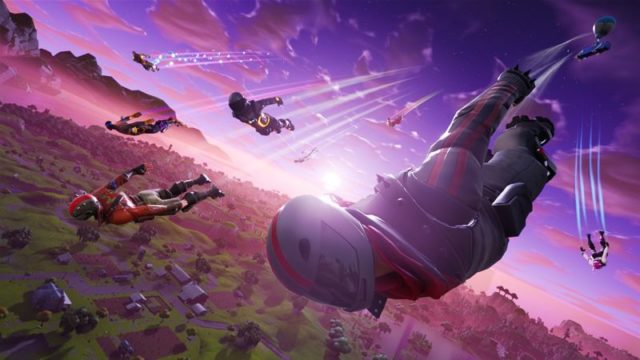
Nintendo hasn’t always been known as a forward thinking company. While they’ve delivered a number of innovative products over the years, the company’s stubbornness often led them to make decisions that could be described as perplexing, at best. The company has gotten a lot better over the years though, and Switch in particular has shown the return of a more aggressive Nintendo. They’ve been surprisingly open in regards to cross-play, allowing Switch owners with games like Minecraft and Rocket League to play online with players on Xbox One and PC. In fact, while Nintendo has been rather open to allowing Switch owners to play with other console owners, one company in particular has taken a stance that seems much more like the Nintendo of old.
During Nintendo’s E3 Direct presentation, Fortnite was announced for Switch, but the news came as little surprise to most video game fans. The news had, after all, leaked a couple weeks prior. What came as a much bigger surprise was the fact that Sony not only blocked cross-play with PlayStation 4, they took a drastic step to prevent PS4 owners from playing the game on Switch at all: any player that had connected an Epic account with their PSN account was blocked from using that same Fortnite account on Nintendo’s console. Players that might want to play the game on PS4 at home and Switch on the go were completely out of luck. The only option for players that had both platforms was to create a second account from scratch for Switch.
While this move is surprising in just how far it goes, it is in keeping with how Sony has been handling the issue over the last few years. Sony has been just as stubborn regarding cross-play between Minecraft on PS4 and Xbox One, despite the fact that Minecraft is published by Microsoft. The company blocked it for the PS4 version of Rocket League, as well. While the company’s official statements on the matter remain vague at best, Psyonix executive Jeremy Dunham clarified the issue as “a political barrier” in an interview with Polygon.
The fact of the matter is that the “political barrier” Dunham referred to is a classic case of arrogance from the current market leader. Sony’s PlayStation 4 currently enjoys a comfortable lead over Nintendo and Microsoft. While Xbox One remains firmly behind both systems, Switch has proven to be a strong contender over the last year, and Sony should beware the mistakes of overconfidence. Nintendo found themselves in a similar position during the early days of the SNES, when they clearly underestimated Sega of America’s tenacity. Nintendo’s regressive policies led to third parties embracing the Sega Genesis and, worse, their arrogance led to Sony partnering with Sega on the Sega CD platform. While things eventually fell apart for Sega, Sony emerged as a much stronger rival for Nintendo, and they’ve dominated the industry ever since.
The parallels are hard to ignore. Like Sega back in the day, Nintendo has quite a bit to prove, right now: despite a history of successes, the failure of Wii U was a rather embarrassing one. Switch’s success can be attributed to a number of factors, but part of it is a result of a willingness on Nintendo’s part to work with other developers and publishers to get high demand games on the system. This aggressive pursuit of third party content is strikingly different from the way Nintendo used to do business, when Sega was the one courting publishers and big name franchises. This strategy seems to be working; Fortnite has already been downloaded more than two million times on Switch since Tuesday.

Though Nintendo’s intentions on cross-play aren’t solely virtuous, their willingness to allow cross-play with other companies is also good for the industry as a whole. For gamers, it lessens the chances that players will be unable to find people to play with online. For publishers, that guaranteed activity will help to keep their titles in the public consciousness for a longer amount of time, increasing shelf life.
Sony’s stubbornness on cross-play likely won’t be the one things that causes them to lose their place at the top of the industry; they’ve built a brand with proven staying power. That said, it does display the type of arrogance that Nintendo was all too guilty of back when they were on top. And history has a funny way of repeating itself.




 ShareThis
ShareThis





